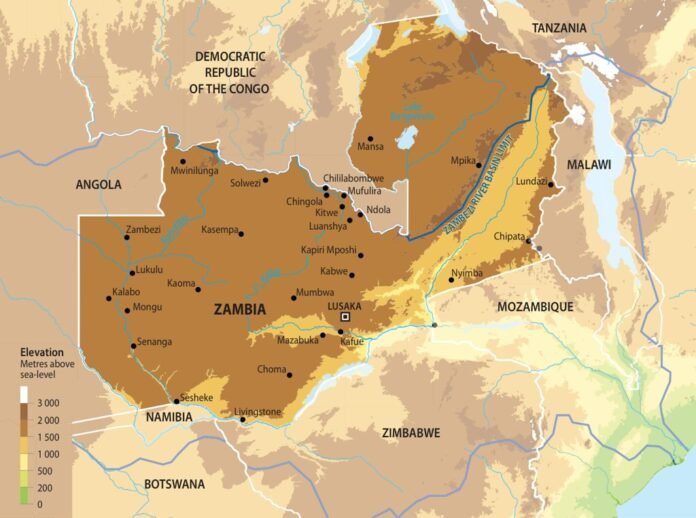Cancer is a major global health concern, and the Democratic Republic of the Congo (DRC) is no exception. Despite its vast population, the country faces significant challenges in providing comprehensive cancer care. Dedicated cancer hospitals are scarce, and many patients struggle to access timely diagnosis and treatment. However, several medical facilities offer some level of oncology services, bringing hope to those affected.
Current State of Cancer Care in the DRC
The DRC lacks specialized cancer hospitals equipped with full-scale oncology departments. Patients often travel long distances to receive medical attention, and in many cases, treatment options are limited. Late-stage diagnoses are common, reducing the effectiveness of available therapies.
Access to chemotherapy, radiotherapy, and surgical oncology remains inconsistent. The country also faces a shortage of oncologists and trained medical staff, further complicating the fight against cancer. However, some medical centers provide related services that play a crucial role in bridging the healthcare gap.
Notable Medical Facilities Providing Cancer-Related Services
1.Centre Medical Diamant
- Location: Kinshasa
- Specialty: Offers oncology services among its specialties.
- Role in Cancer Care: While not a dedicated cancer hospital, Centre Medical Diamant provides essential diagnostic and treatment services. Patients seeking chemotherapy or consultations with specialists can receive care here. However, access to advanced treatment methods like radiotherapy is still limited.
View this post on Instagram
2.Ngaliema Medical Center
- Location: Ngaliema, Kinshasa
- Specialty: Provides general and emergency medical services but lacks specialized cancer care.
- Role in Cancer Care: Ngaliema Medical Center serves as an important healthcare facility, offering general medical assistance. Though it does not focus on oncology, it helps with initial diagnoses and referrals to other institutions that provide cancer treatment.
View this post on Instagram
Challenges in Cancer Treatment
1. Lack of Specialized Hospitals
The absence of fully equipped cancer hospitals means patients often rely on general medical centers that may not have the necessary expertise or technology to provide optimal care.
2. Limited Access to Diagnostic Tools
Early detection is key in cancer treatment, but diagnostic capabilities in the DRC are inadequate. Many hospitals do not have the necessary imaging equipment or pathology services to confirm cancer diagnoses efficiently.
3. Cost Barriers
Cancer treatment is expensive, and many Congolese patients cannot afford it. Chemotherapy, when available, comes at a high price. Many families are forced to seek alternative treatments or travel abroad, which is not a viable option for most.
4. Shortage of Oncologists and Specialists
The DRC has very few trained oncologists. The lack of specialists affects patient outcomes, as timely interventions and expert care are crucial in cancer management.
5. Limited Awareness and Screening Programs
Many cancers are preventable or treatable when detected early. However, due to a lack of education and awareness, many people do not seek medical help until symptoms become severe. National cancer screening programs are also scarce, contributing to late-stage diagnoses.
Steps Toward Improving Cancer Care
While the situation is challenging, several initiatives and potential improvements can help enhance cancer care in the DRC.
1. Expanding Oncology Services in Existing Hospitals
Investing in oncology departments within major hospitals like Centre Medical Diamant and Ngaliema Medical Center can help improve access to care. This includes hiring more oncologists, expanding chemotherapy services, and improving diagnostic tools.
2. Establishing a National Cancer Center
The government and private sector should collaborate to create a specialized cancer hospital equipped with modern diagnostic and treatment facilities. Such a center would reduce the need for medical travel and provide localized, affordable care.
3. Training More Oncologists and Healthcare Professionals
Medical schools and health institutions need to prioritize oncology training. Encouraging doctors to specialize in cancer treatment and offering incentives to keep them in the country can help address the current shortage.
4. Implementing Nationwide Screening Programs
Early detection saves lives. The government should initiate and fund cancer screening programs, especially for common cancers like breast, cervical, and prostate cancer. Mobile screening units could help reach remote communities.
5. Increasing Public Awareness
Educational campaigns can help inform the public about cancer risks, symptoms, and the importance of early detection. Partnering with local media and community organizations can amplify these efforts.
6. Strengthening International Collaborations
The DRC can benefit from partnerships with international health organizations. Collaborations can provide funding, training, and access to medical equipment. Organizations like the World Health Organization (WHO) and regional health alliances can play a critical role in improving cancer care infrastructure.
Looking Ahead: Hope for Cancer Patients in the DRC
While the current state of cancer care in the DRC is far from ideal, small steps toward improvement are evident. Healthcare providers, government agencies, and international organizations must continue working together to build a more robust cancer care system.
Patients deserve timely, affordable, and effective treatment. By investing in better medical infrastructure, increasing the number of trained professionals, and raising awareness, the DRC can improve survival rates and offer hope to those battling cancer.
Cancer care is a journey—one that requires commitment, innovation, and collaboration. The road ahead is challenging, but with the right strategies, the DRC can make significant progress in providing quality oncology services to its people.


